El Salvador Bitcoin purchases have ignited global interest as the country defiantly continues to accumulate cryptocurrency despite warnings from the International Monetary Fund (IMF). Under the leadership of President Nayib Bukele, El Salvador’s recent acquisition of six Bitcoins for about $500,000 exemplifies its bold investment strategy amidst a notable Bitcoin market decline, which saw values drop by approximately 12%. With total Bitcoin holdings now exceeding 6,111 BTC, worth over $504 million, this Central American nation presents a unique case study of resilience against conventional financial advice. The IMF’s Bitcoin stance has been critical, urging El Salvador to limit its Bitcoin investment and reassess its economic engagements with cryptocurrency. Nonetheless, Bukele’s administration appears undeterred, signaling a strong commitment to leveraging market dips for further accumulation of digital assets.
In the world of cryptocurrency, El Salvador’s strategic Bitcoin acquisitions have placed the nation at the forefront of digital asset advocacy. This Central American country continues to defy traditional financial expectations, particularly with its unwavering Bitcoin investment amidst fluctuations in the cryptocurrency market. Led by President Nayib Bukele, the nation’s approach to digital currencies seeks to establish a robust framework for financial inclusion and economic growth. El Salvador’s ongoing Bitcoin holdings reflect a significant shift in how governments perceive and engage with cryptocurrencies, challenging mainstream financial institutions like the IMF. As the dialogue around digital assets evolves, El Salvador stands as a symbol of innovation and resilience in the face of skepticism.
El Salvador’s Bold Bitcoin Strategy Amid Market Fluctuations
El Salvador’s approach to Bitcoin investment is characterized by significant audacity, especially in light of the prevailing market conditions. The government’s recent acquisitions, totaling six BTC when prices dipped to around $80,000, illustrate a targeted Bitcoin investment strategy that capitalizes on downward market movements. Notably, the country’s total Bitcoin holdings are now valued at an impressive $504 million. This strategy of accumulating Bitcoin, even during periods of decline, showcases a long-term vision that contrasts sharply with the cautious stance recommended by financial institutions like the IMF.
Nayib Bukele, the President of El Salvador, plays a crucial role in driving this Bitcoin initiative forward. His administration has emphasized leveraging market dips as opportunities to bolster national reserves, a strategy that embraces volatility as a means to financial advantage. The continued investments signal a resilient commitment to cryptocurrency, positioning El Salvador as a pioneer in Bitcoin adoption, despite facing scrutiny from the IMF regarding digital asset regulations.
Impacts of the IMF’s Stance on El Salvador’s Bitcoin Holdings
The IMF’s stance on Bitcoin has considerable implications for El Salvador’s financial future. With the international organization suggesting tighter regulations around cryptocurrencies, the pressure mounts on the Salvadoran government to comply. The IMF fears that unchecked Bitcoin investment could lead to volatility and instability within El Salvador’s economy, especially given the recent Bitcoin market decline. However, El Salvador’s growing Bitcoin holdings, now reaching over 6,111 BTC, appear to defy these international recommendations and indicate a deepening commitment to cryptocurrency.
Despite the ongoing negotiations for a $1.4 billion financial package, El Salvador remains steadfast in its Bitcoin endeavors. The nation’s leadership aims to assert its sovereignty over financial decisions, interpreting ongoing investments as crucial to national strengthening and economic independence. As the situation evolves, the balancing act between complying with IMF directives and pursuing aggressive cryptocurrency investments will be closely scrutinized as it may set a precedent for other nations exploring similar paths.
Navigating Bitcoin Market Trends: El Salvador’s Resilient Purchases
El Salvador’s sustained Bitcoin purchases amid recent market trends underscore a calculated risk-taking approach. This strategy, which has seen the country purchasing BTC even as prices decrease, reflects a belief in the long-term potential of Bitcoin as an asset class. Over the past week alone, the nation has acquired 18 BTC, further solidifying its position in the cryptocurrency landscape. Such a move reveals not only confidence but a broader Bitcoin investment strategy that actively utilizes market volatility to its advantage.
Moreover, this strategic buying technique has been employed in previous market dips, as noted by Stacy Herbert from the Bitcoin Office. By effectively timing acquisitions during periods of price decline, El Salvador positions itself to benefit from future market recoveries. This proactive stance is vital as it may serve as a model for other nations reluctant to embrace cryptocurrencies, showing that well-timed investments can be advantageous even during less favorable market conditions.
The Future of Bitcoin in El Salvador: A Commitment to Cryptocurrency
Looking to the future, El Salvador’s commitment to Bitcoin appears unwavering, despite external pressures from entities like the IMF. The government has made it clear that they will not retract their Bitcoin purchases, with President Bukele asserting that these foundational investments are crucial for technological advancement and economic development. The ongoing support for cryptocurrency integration into the national framework suggests that El Salvador is positioning itself not only as a Bitcoin adopter but as a leader in the emerging digital economy.
With each Bitcoin acquired, El Salvador embarks on a journey towards potential financial innovation, seeking to redefine its economic landscape. The country aims to establish a framework that encourages international investment in technology and finance, inspiring hope for a more prosperous future. This vision, rooted in a determined Bitcoin strategy, may indeed set a precedent, leading other nations to reconsider their stance on cryptocurrencies and potentially altering global financial dynamics.
El Salvador’s Bitcoin Purchases: Defiance Against IMF Regulations
The boldness of El Salvador’s Bitcoin purchases cannot be overstated, especially when considering the regulatory framework suggested by the IMF. The country’s decision to continue accumulating BTC, despite a downturn in the market, exemplifies a defiance of external pressures. El Salvador’s leadership perceives these purchases not merely as transactions, but as a commitment to a revolutionary financial future that seeks to break traditional banking norms and embrace the decentralized nature of cryptocurrencies.
This defiant posture is particularly significant given the IMF’s concerns regarding financial prudence and risk management in cryptocurrency dealings. Evaluation of El Salvador’s Bitcoin holdings illustrates that, unlike typical financial strategies dictated by international standards, the country’s approach is driven by the belief in Bitcoin as a transformative asset. As President Bukele continues to promote these initiatives, it raises questions about the potential repercussions of disregarding the IMF’s recommendations, both domestically and internationally.
Nayib Bukele’s Vision for Bitcoin in El Salvador
Nayib Bukele’s vision for Bitcoin in El Salvador is nothing short of revolutionary, positioning the country at the forefront of cryptocurrency adoption. His leadership has been instrumental in pushing for policies aimed at integrating Bitcoin into everyday financial practices. This vision goes beyond mere investment; it encompasses a broader strategy intended to stimulate economic growth, create jobs, and increase financial inclusion among Salvadorans who may not traditionally have access to banking services.
Moreover, Bukele’s governance has embraced Bitcoin as a national cryptocurrency, which serves to enhance not only the monetary capabilities of the nation but also its global financial reputation. His administration’s continued purchases, particularly during market dips, signify a deliberate strategy to accumulate wealth even during challenging economic times. This aligns with Bukele’s overarching goal of establishing El Salvador as a global hub for cryptocurrency, potentially attracting foreign investment and innovative blockchain projects to the region.
Understanding the Implications of Bitcoin Market Decline for El Salvador
As the Bitcoin market experiences fluctuations, the implications for El Salvador are profound. The recent market decline of approximately 12% presents challenges, yet also opportunities for the country to augment its Bitcoin holdings. By purchasing Bitcoin at lower prices, El Salvador aims to build a robust reserve that could withstand future market volatility. This strategy not only reflects confidence in the rebound of Bitcoin but also indicates a calculated approach to asset management.
The broader context of the Bitcoin market decline also raises questions about financial stability and investor confidence. For El Salvador, navigating these turbulent waters requires a delicate balance between maintaining and promoting its cryptocurrency holdings while adhering to financial regulations proposed by the IMF. As the government continues to advocate for Bitcoin’s role in its economic recovery, understanding the market dynamics will be vital in shaping future policies around digital currencies.
The Role of Bitcoin in El Salvador’s National Economic Strategy
Bitcoin’s role in El Salvador’s national economic strategy is increasingly becoming a focal point for both assessment and optimism. By integrating Bitcoin into economic models, the government seeks to leverage blockchain technology not only for financial transactions but also for innovative applications in various sectors. This shift aims at modernizing the economy, providing a catalyst for technological advancement in a nation striving to uplift its citizens from poverty.
Furthermore, El Salvador’s ongoing purchases and investments in Bitcoin illustrate a strategic pivot towards a technology-driven future. As traditional financial systems face challenges such as inflation and systemic risk, Bitcoin offers an alternative for wealth preservation and growth. Moving forward, if El Salvador successfully positions itself as a leader in digital currency adoption, it could influence economic policies regionally and globally, encouraging others to reevaluate their approaches to cryptocurrency.
El Salvador’s Unique Position in the Global Bitcoin Landscape
El Salvador’s unique position in the global Bitcoin landscape is underscored by its adoption of cryptocurrency as legal tender. This pioneering move has not only attracted significant international attention but also set the stage for an experimental financial environment. The commitment to Bitcoin, reinforced by recent purchases despite a market downturn, exemplifies a calculated risk that could yield substantial rewards in the long term. As nations grapple with the integration of digital currencies, El Salvador stands out as a case study in ambition and innovation.
Additionally, the country’s Bitcoin holdings represent a tangible asset that could empower El Salvador economically on the world stage. By challenging norms and defying warnings from the IMF, El Salvador showcases a distinct approach to economic resilience through cryptocurrency. This bold strategy positions the nation not only as an early adopter but also as a potential leader in the global shift towards digital finance, inspiring other countries to follow suit.
Frequently Asked Questions
How does El Salvador’s Bitcoin purchases challenge the IMF’s stance on cryptocurrency?
El Salvador’s Bitcoin purchases directly oppose the IMF’s directives by reinforcing its commitment to cryptocurrency amidst market downturns. Despite the IMF’s recommendations to limit Bitcoin holdings and activities, such as acquiring Bitcoin through voluntary purchases, El Salvador has continued to increase its Bitcoin reserves, exemplifying the country’s defiance of the IMF’s stance on digital assets.
What is the current value of El Salvador’s Bitcoin holdings amid market declines?
As of now, El Salvador’s Bitcoin holdings amount to approximately 6,111 BTC, valued at over $504 million. This significant investment contrasts with the recent decline in the Bitcoin market, where prices have dropped approximately 12%, reflecting a strategic long-term investment approach by the Bukele administration despite volatility.
How does El Salvador’s investment strategy in Bitcoin align with the recent market performance?
El Salvador’s investment strategy in Bitcoin emphasizes buying during market declines. The country recently acquired six BTC for around $500,000, adding to its purchases during recent price drops, which indicates a calculated approach to strengthen its Bitcoin holdings despite overall market instability.
What actions has El Salvador taken to acquire Bitcoin amidst the IMF’s concerns?
El Salvador has actively acquired Bitcoin against the IMF’s advice by announcing purchases during key market dips. The government, led by President Nayib Bukele, has emphasized that these acquisitions will continue, which directly challenges the IMF’s call for reductions in public sector Bitcoin involvement and stricter regulations.
How has the IMF reacted to El Salvador’s Bitcoin purchases since negotiations began?
The IMF has expressed concerns regarding El Salvador’s Bitcoin purchases, particularly linking them to the conditions of a $1.4 billion financial aid package. The IMF has recommended that El Salvador cease voluntary Bitcoin acquisitions, particularly through mining operations, and limit holdings to those obtained through legal actions like seizures.
What recent activities have El Salvador’s Bitcoin Office announced?
Recently, the El Salvador Bitcoin Office announced that the country has continued its Bitcoin purchases, totaling 19 BTC in March alone. This includes strategic buys during a market decline, showcasing El Salvador’s commitment to accumulating Bitcoin amidst fluctuations.
Why does President Nayib Bukele remain committed to Bitcoin despite IMF constraints?
President Nayib Bukele’s commitment to Bitcoin is driven by a vision of financial independence and economic growth through cryptocurrency. Despite IMF constraints and market challenges, Bukele believes in Bitcoin’s potential as an asset for the future and has positioned El Salvador as a leader in adopting digital currencies.
| Key Point | Details |
|---|---|
| El Salvador’s Bitcoin Holdings | Approximately 6,111 BTC worth $504 million. |
| Recent Purchases | Acquired 6 BTC for around $500,000; total 19 BTC in March 2025. |
| Market Conditions | Bitcoin experienced a 12% decline, prices around $80,000. |
| IMF Stance | IMF advised against Bitcoin purchases and proposed conditions for a $1.4 billion aid package. |
| Country’s Response | Continues to purchase Bitcoin, asserting commitment to cryptocurrency despite IMF warnings. |
| Previous Adjustments | Revoked requirements for businesses to accept Bitcoin and reduced its use for tax payments. |
Summary
El Salvador Bitcoin purchases have not wavered despite ongoing tensions with the International Monetary Fund. The country’s firm stance on acquiring Bitcoin, even during market downturns, emphasizes its commitment to the cryptocurrency, signifying a bold approach to financial innovation and independence. As the nation navigates its relationship with international financial structures, the continuous expansion of its Bitcoin reserves showcases its strategy of capitalizing on market dips, establishing a unique position in the global cryptocurrency landscape.
El Salvador Bitcoin purchases are making headlines as the Central American nation defies the International Monetary Fund (IMF) amid a notable Bitcoin market decline. The government, led by President Nayib Bukele, recently announced the acquisition of new Bitcoin, adding to its already sizable holdings of over 6,100 BTC valued at approximately $504 million. As the country embraces its Bitcoin investment strategy, these purchases not only symbolize a rejection of the IMF’s warnings but also reflect a bold approach to navigating financial instability. El Salvador’s commitment to increasing its Bitcoin holdings, even during a downturn in prices, demonstrates resilience and a forward-thinking attitude toward cryptocurrency. With global debates surrounding the IMF Bitcoin stance, El Salvador’s actions highlight the growing significance of Bitcoin on a national level and its potential impact on economic policies.
In the heart of Central America, the ongoing Bitcoin endeavors of this nation have sparked both intrigue and controversy. Embracing its role as a pioneer in cryptocurrency adoption, El Salvador continues to bolster its digital asset reserves, thus challenging the traditional financial norms championed by the International Monetary Fund. The nation’s escalating Bitcoin acquisitions aim to pave a new economic path, contrasting sharply with the IMF’s hesitant outlook on digital currencies. Under the leadership of President Nayib Bukele, this sustainable investment during turbulent times signals a strategic pivot toward leveraging cryptocurrency’s potential for long-term growth. As discussions around digital currencies evolve, El Salvador stands out as a case study in embracing innovation against conventional financial advice.
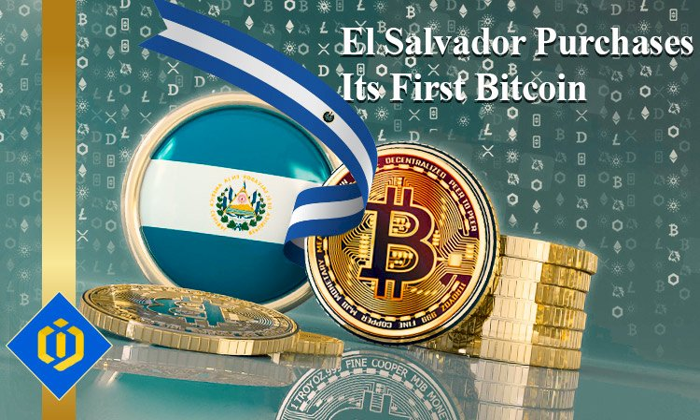

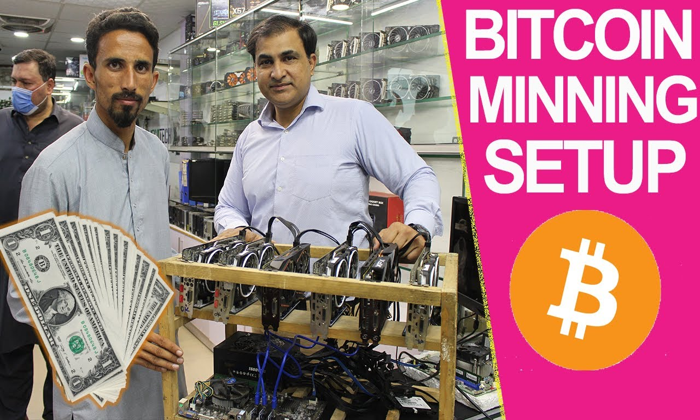



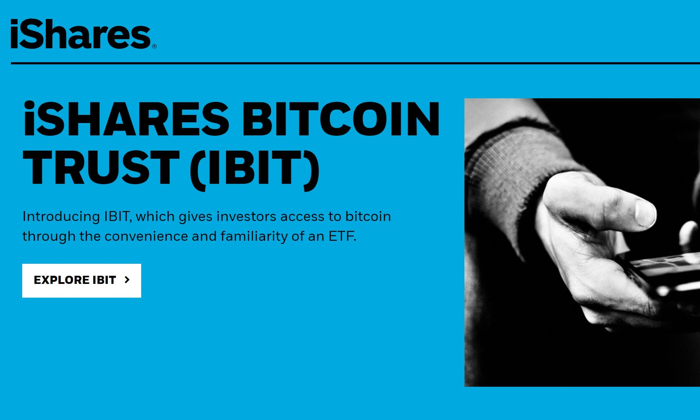

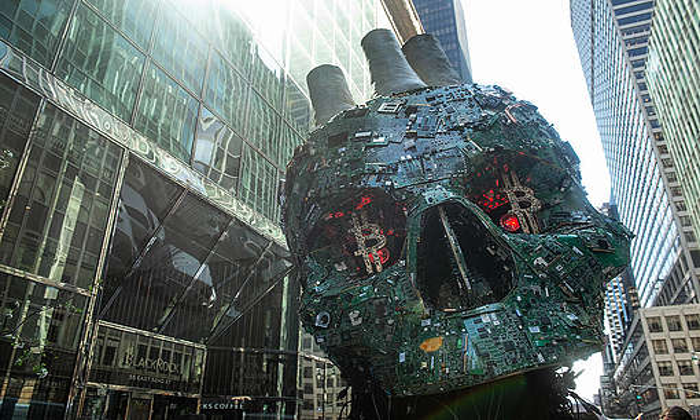




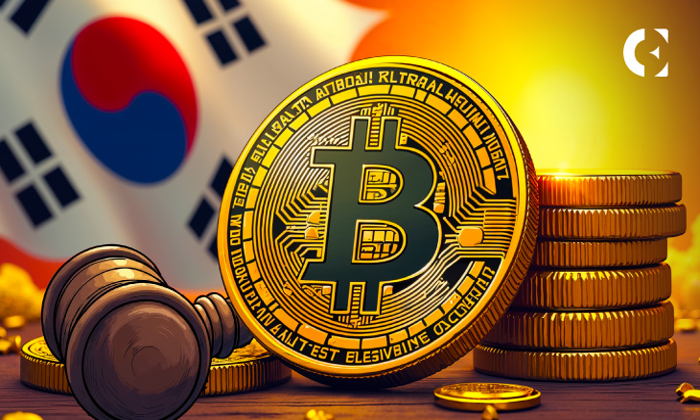
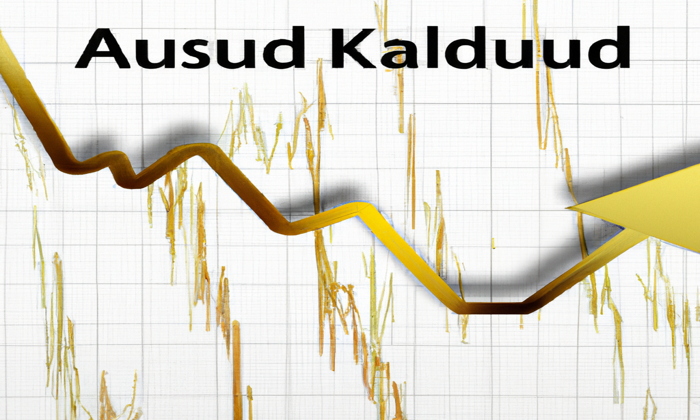

Leave a Reply